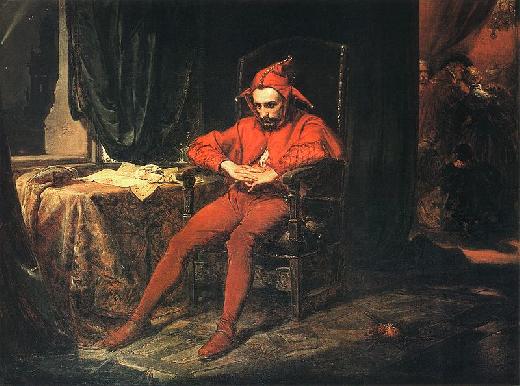Sto, that is a lot. Stanczyk is getting old, … really, really old. Has it already been a century since the birth of Nobel Laureate, Czeslaw Milosz ? Time flies when you are a royal jester. In two days, we will be celebrating Milosz’s 100th birthday. Milosz is near and dear to moje serce (my heart). When asked about his nationality, Milosz replied …
“I am a Lithuanian to whom it was not given to be a Lithuanian.” and “My family in the sixteenth century already spoke Polish, just as many families in Finland spoke Swedish and in Ireland English, so I am a Polish not a Lithuanian poet.”
A complex mind indeed. But I get Milosz. His family was from the era of the Polish-Lithuanian Commnwealth, literately Polish as were most in the circles of power or in the intelligentsia circles. So his thoughts were Polish, but his world view was Lithuanian where he was born. Of course this is in counter-point to Milosz being born into the Russian Empire. On June 30th, 1911 (Milosz’s birth) in the village of Szetejnie, his family was a member of the Russian Empire (Kovno Gubernia), just one of ten provinces in Russian-Poland (occupied Poland) inside the much larger Russian (still Czarist) Empire. Milosz however, was never Russian, not Czarist and no, not ever a Soviet.
I get Milosz. His Slavic soul still whispers to me and his way with words kept rapt, my attention. Much of his poetry/prose was indeed of his memory of Lithuanian places or experiences. That is not to negate his Polish experiences both pre and post Communism. His novel, “The Captive Mind”, a brilliant anti-Stalinist piece that made him well known, … in the Western, non-communist world. His works were unknown in Poland and the West thought of him as a political writer, not a poet. Milosz emigrated to the USA in 1960 and in 1961 started his tenure in Slavic Literature/Studies at UC Berkley, and became a US citizen in 1970. In 1980, he was awarded the Nobel Prize in Literature. Oddly, because his works were banned in Communist Poland, he was largely unknown as a writer in Poland until the award. Gradually, after the fall of Communism (by the 1990’s), Milosz moved back to Poland and lived and died in Krakow in 2004.

Crypt of the Meritorius
After a solemn mass at the Krakow Basilica of St. Mary’s, where a letter was read by the Pope, Blessed John Paul II, of the Pope’s last correspondence with the poet. The funeral procession followed the Royal Road to the church of St. Michael the Archangel & St. Stanislaus on the Rock (na Skalce), where his sarcophagus is interred in its crypt. This crypt holds a Polish National Pantheon of literati.
Stanczyk only owns four works by Milosz: ①The History of Polish Literature, ② New and Collected Poems (1931-2001), ③ Road-Side Dog (two copies), and ④ Milosz’s Alphabet. I hope my readers will not think less of me, because I say, that the Road-Side Dog is my favorite. Milosz, I started writing far too late, but I assure you that there are many of your, Subjects, that I wish, To Let. Mój piesek (my little dog), Java, is not so little and seldom Road-Side, but her and I have a voice and your subjects To Let and some topics of our own to bark at visitors as they go by. Milosz, bless me with your literate spirit. I get you Milosz and you live on in my, and I assume many minds and hearts, forever. Pity you did not live to this era of blogging and Twitter. I doubt you’d have tweeted, but the blog would have been a fine media for your splendid thoughts.
Happy Birthday Czeslaw! Sto lat!






 That is when I found this funeral ad. This I knew in a minute when I saw, as it was very familiar from reading the Dziennik Polski (Detroit) ethnic newspaper, which is itself an historic newspaper now. At any rate, I hate to leave vital records behind and since this was the only vital record in the 4 pages of the Gazeta Kielecka, I could afford to spend some of my effort to help some other poor genealogist(s).
That is when I found this funeral ad. This I knew in a minute when I saw, as it was very familiar from reading the Dziennik Polski (Detroit) ethnic newspaper, which is itself an historic newspaper now. At any rate, I hate to leave vital records behind and since this was the only vital record in the 4 pages of the Gazeta Kielecka, I could afford to spend some of my effort to help some other poor genealogist(s).





You must be logged in to post a comment.